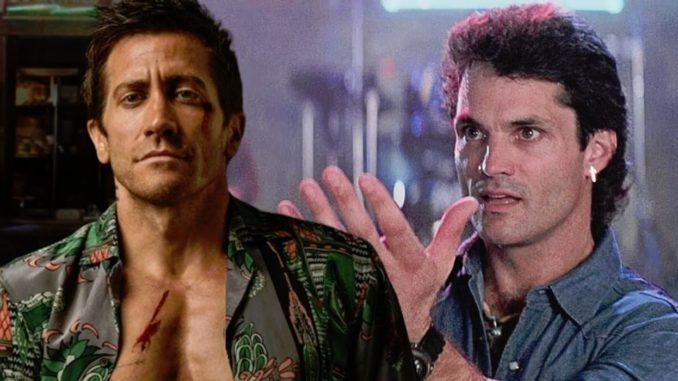
There may be few more quintessentially eighties films than Roadhouse, so it’s perhaps a bit of a surprise that I realized I’d never seen it. This may be because of my limited tolerance for Patrick Swayze: neither Ghost nor Dirty Dancing were of much appeal, though Point Break seemed pretty cool at the time. I think it perhaps seemed such an American concept: if you asked me, I’d still not be entirely sure what a roadhouse is. There is a Texas Roadhouse restaurant near us, but it’s just a casual dining establishment with a light country & western theme, albeit one with particularly fluffy and delicious rolls. I have never seen any brawls there, though I could certainly see one breaking out, if they ever ran out of bread.
But as Hollywood continues to consume itself, in the never-ending search for product, a remake was probably inevitable, and here we are. However, expectations were muted with the decision to skip cinemas entirely, and send the remake straight to streaming on Amazon Prime. Weirdly, Amazon agreed to give the makers a bigger budget in exchange for skipping a theatrical release, adding $25 million to the original $60 million. It still had a fairly troubled path to the screen, especially after original studio MGM got bought out by Amazon, and the project’s original champions left the company. Producer of the original film, Joel Silver, also reportedly got fired for “verbal abuse,” and director Doug Liman boycotted the premiere to protest the decision to have no theatrical release, saying “Amazon has no interest in supporting cinemas.”
None of which necessarily means the film will suck. We’ve all seen troubled productions which led to classic movies, perhaps most famously Apocalypse Now, and a smooth journey to the screen is now guarantee of quality. So, with an open mind, I cleared the decks on a Sunday, and sat down to watch, first the original, and then the remake. Has the former stood the test of time, or has it gone the way of some other eighties cult movies? Does the remake bring anything fresh, or is it just another grab for nostalgia, with a remake nobody asked for or needed? Armed only with a basket of fluffy rolls, I sat down to find out.
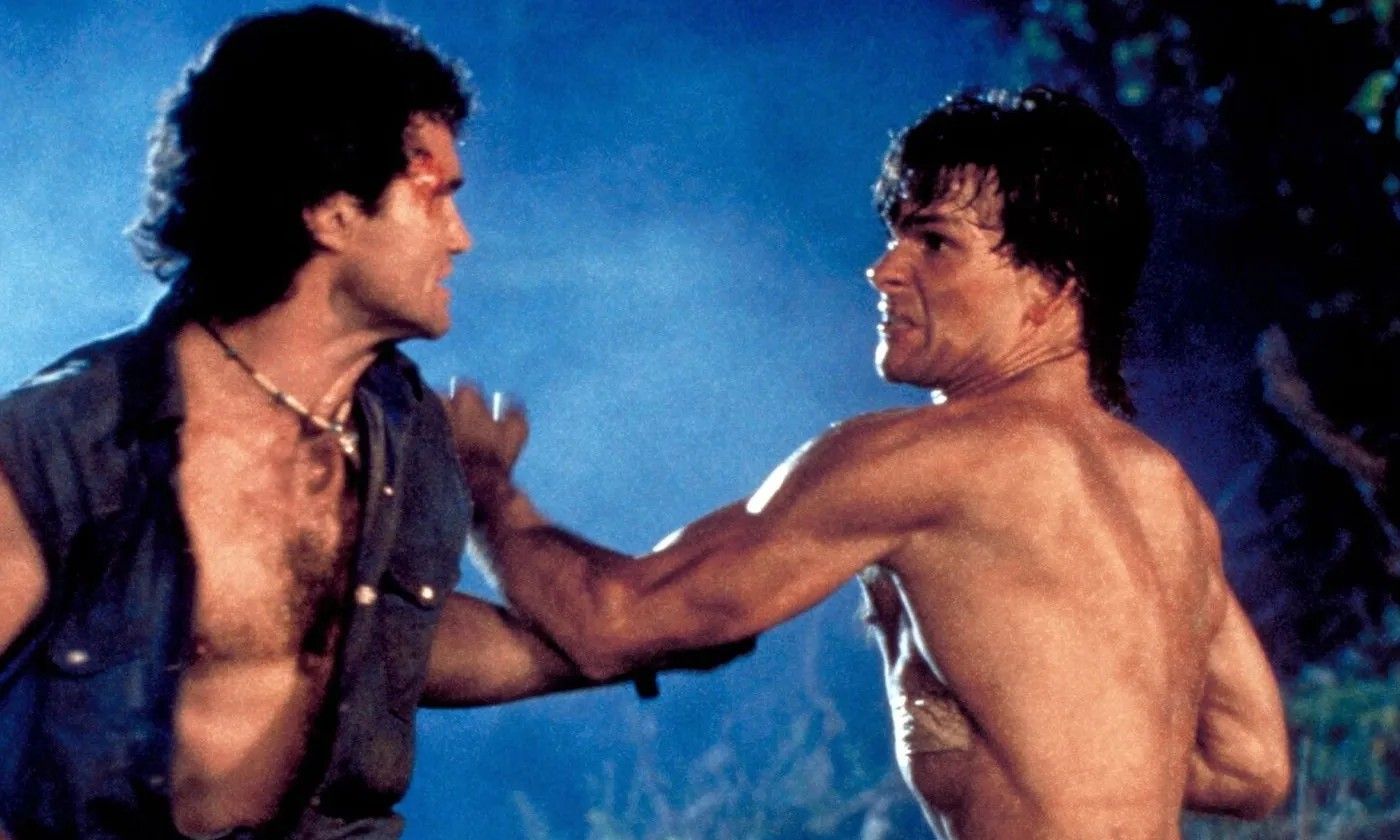
Road House (1989)
Rating: B-
Dir: Rowdy Herrington
Star: Patrick Swayze, Ben Gazzara, Kelly Lynch, Sam Elliott
I think the term “road house” is probably largely an American institution, and one wonders whether it has survived the steady crackdown on drink-driving. While there are tiers of such establishments – the first one in which we see Dalton (Swayze) working is clearly upper-class as road houses go – they don’t seem the kind of place for designated drivers to order a Diet Pepsi. I’ve been in some dodgy pubs in my younger days, but can still count on one hand the number of actual bar fights I’ve seen. Here, they seem to break out on a strict schedule, every quarter-hour. It’s to the Double Deuce in Jasper, Missouri that Dalton relocates, hired to bring it under control for owner Frank Tilghman.
However, the bar and the town in general have bigger problems, in the shape of sleazy businessman Brad Wesley (Gazzara). Dalton annoys Wesley in a variety of ways. He fires Wesley’s nephew for skimming bar takings. Romances local doctor Elizabeth Clay (Lynch), whom Wesley fancies. Bypasses Wesley’s efforts to cut off alcohol supplies to the Double Deuce. And, on multiple occasions, punches out the minions sent to the bar to disrupt things, especially after Dalton’s efforts turn the bar from a war-zone to the hippest joint in Jasper. [Though since Wikipedia tells me it has a population of about a thousand, I suspect the competition for that title is not enormous] Escalation seems inevitable, and… yeah, things escalate.
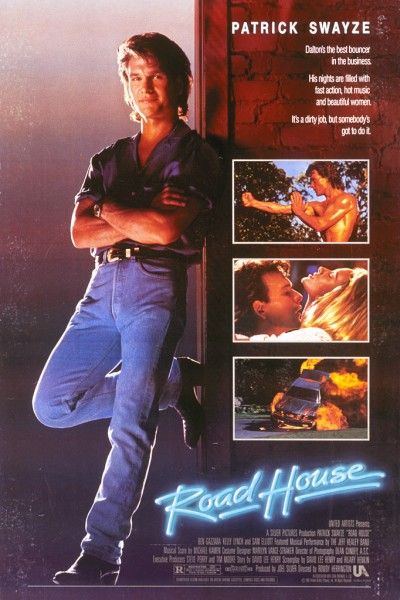 In some ways, Dalton feels like a prototype of Jack Reacher, travelling from town to town as a “cooler”, using both brawn and not inconsiderable brain to defeat the bad guys. Dalton has a PhD in philosophy, which helps explains his delivery of koan-like nuggets, such as “Nobody ever wins a fight.” The bulk of the film would beg to differ on that matter, Dalton largely mowing down opponents as necessary, the appropriately-named director capturing the large quantities of tavern carnage with a clear eye and obvious enthusiasm. These elements are fun, as is Elliott’s portrayal of Dalton’s mentor, though it’s hard not see him as Virgil Earp from Tombstone, with lines like “When a man sticks a gun in yer face, you got two choices; you can die or you can kill the motherfucker.”
In some ways, Dalton feels like a prototype of Jack Reacher, travelling from town to town as a “cooler”, using both brawn and not inconsiderable brain to defeat the bad guys. Dalton has a PhD in philosophy, which helps explains his delivery of koan-like nuggets, such as “Nobody ever wins a fight.” The bulk of the film would beg to differ on that matter, Dalton largely mowing down opponents as necessary, the appropriately-named director capturing the large quantities of tavern carnage with a clear eye and obvious enthusiasm. These elements are fun, as is Elliott’s portrayal of Dalton’s mentor, though it’s hard not see him as Virgil Earp from Tombstone, with lines like “When a man sticks a gun in yer face, you got two choices; you can die or you can kill the motherfucker.”
Less successful to me were the romantic elements, with Elizabeth apparently there, purely in order to stop things getting too homo. This affirmation of heterosexuality is probably needed when you have so many shots of a shirtless Swayze, as well as one of Wesley’s minions telling Dalton, “I used to fuck guys like you in prison.” But he’s a bad guy, so it’s fine. All the kissy-face stuff isn’t very interesting, and probably results from my low opinion of Swayze as a romantic lead. As a weird cross between Bruce Lee and The Dude, he’s fine. It all feels almost older than it is, sometimes seeming to take place in the sixties – the lack of black characters, for instance. I’m curious whether the remake will “fix” this – probably at the expense of the female nudity.
And, lo, that turns out to be exactly what happened. The bar owner who hires Dalton to clean up their business, was transformed from Kevin Tighe to a black woman, while the copious nudity of the original dropped to PG-level. It’s likely representative of the new Hollywood puritanism that the violence became more bone-crushingly brutal, while breasts are no longer allowed. The main source of flesh in the remake is Conor McGregor, and that’s done purely for comedic purposes. But tits aside, how does the remake compare?
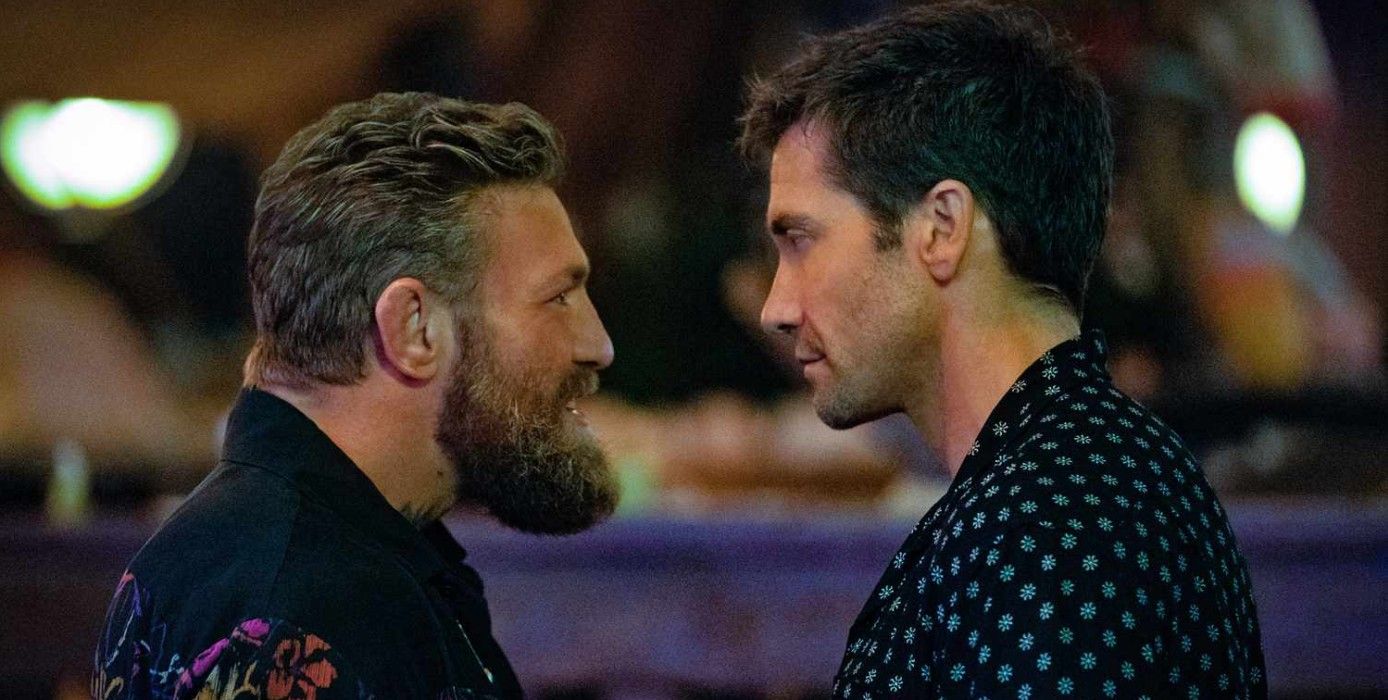
Road House (2024)
Rating: C-
Dir: Doug Liman
Star: Jake Gyllenhaal, Daniela Melchior, Billy Magnussen, Conor McGregor
My long-standing rule quickly comes into play here: only remake a film if you can bring something new and interesting to the table, or improve significantly on an area in which the original was deficient. On that basis, this doesn’t work. What’s new here isn’t interesting, and while the action here is certainly more hard-hitting (although there’s a large caveat to that statement), it was hardly a problem in the eighties Road House. At least they didn’t mess with the story, which is nominally the same. Dalton (Gyllenhall) is hired to clean up a violence-troubled drinking establishment, only to find himself going up against a businessman with bad intentions for the local area. Though why this version needs to be over two hours long escapes me.
On the positive side, I liked Gyllenhaal. He’s not as damn weird as Swayze, and is plausible enough as a troubled ex-UFC fighter, whose career was yanked from under him after he failed to manage his anger. The problem is, few of the other characters seem to be operating in the same movie. In the original, you could easily imagine them being from the same universe, albeit a rather bizarro one. Here, you have Magnussen as evil property developer Ben Brandt, about as bland and unthreatening as bread rolls. While Conor McGregor – whom the IMDb would like to remind you, is not an actor – chews scenery like it’s chicken tendies. Combine the two performances and the average would be about right.
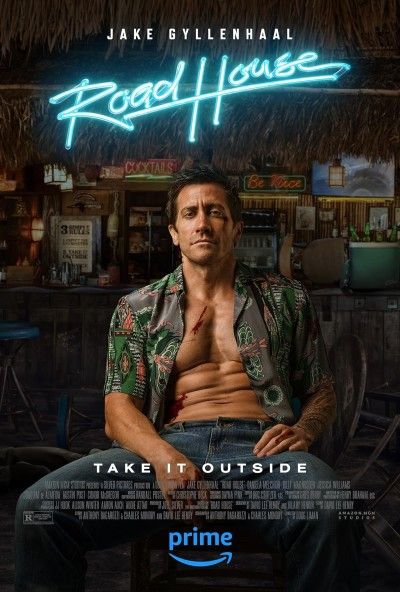 Then the film gives Dalton a perky teenage sidekick, who runs a customer-free bookshop, and seems to have strayed in from a Disney movie. It’s a weird change from the garage guy, whom you could plausibly see Dalton connecting with. And the film relocates proceedings to the Florida Keys, with the new road house looking like an off-brand Islands franchise. All these changes seem intended to separate the remake from its predecessor; they do, yet I can’t think of one which was an improvement. The brutality of the fight scenes is notable, but is largely achieved through CGI, sometimes very obviously. By the end, when a guy flies hundreds of feet through the air without significant damage, any impact is negligible.
Then the film gives Dalton a perky teenage sidekick, who runs a customer-free bookshop, and seems to have strayed in from a Disney movie. It’s a weird change from the garage guy, whom you could plausibly see Dalton connecting with. And the film relocates proceedings to the Florida Keys, with the new road house looking like an off-brand Islands franchise. All these changes seem intended to separate the remake from its predecessor; they do, yet I can’t think of one which was an improvement. The brutality of the fight scenes is notable, but is largely achieved through CGI, sometimes very obviously. By the end, when a guy flies hundreds of feet through the air without significant damage, any impact is negligible.
Like most modern remakes, it would plausibly pass muster if you’ve never seen the original. Liman is by no means a bad director, and there are just about enough decent scenes to sustain interest. However, the sense of white trash culture which informed the original is gone, and what you have here, instead feels more like a pilot for a Miami Vice reboot. So. Much. Power-boating. Outside of McGregor’s performance, there is almost nothing here that will make any impression. The whole thing seems destined to be forgotten as soon as it vanishes off Amazon’s front page, alongside the Robocop and Total Recall remakes. Why Liman got so bent about it skipping cinemas, I don’t know. If I’d paid actual money for this, I would be unimpressed.
